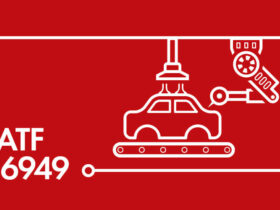Franchise Business Consultants have always played an important role in the success of a brand, especially franchising your existing business, but their responsibilities have changed a lot over the years and continue to develop today.
Ten or twenty years ago, the main focus of Franchise Business Consultants was to make sure franchisees followed operational rules. While keeping brand standards is still important, most Franchise Business Consultants today are also equally focused on coaching franchisees to improve their performance. Coaching can be casual, but the most successful Franchise Business Consultant–franchisee partnerships are usually more formal and based on data.
During the pandemic, many brands expanded the number of franchisees each Franchise Business Consultant managed. This happened partly because Franchise Business Consultants were doing most of their visits virtually, which gave them more time. Today, a Franchise Business Consultant typically works with around 34 franchisees.
These changes have created an opportunity — and a best practice — for Franchise Business Consultants to provide coaching through more structured and consistent business planning. The best Franchise Business Consultants combine coaching with compliance, use data and technology to create joint action plans, and balance in-person visits with virtual meetings.
Better Data Improves Visibility and Supports Formal Performance Plans
One major difference among franchisors is how they use software to help Franchise Business Consultants manage their work. These tools give Franchise Business Consultants clear visibility over their assigned locations and allow detailed analysis of each store, both individually and as a group. All key performance data is pulled into a single, easy-to-read dashboard. This reduces the overload of having to check multiple systems for KPIs and helps Franchise Business Consultants track performance, create action plans, and monitor results more effectively.
Before visiting a location or joining a virtual meeting, the Franchise Business Consultant already has the necessary data, including sales, customer satisfaction, labor costs, and more. Instead of making guesses like “I think your labor costs are high,” they can give specific comparisons, such as “Your labor costs are 20% higher than other stores of the same size and age.”
This detailed analysis allows Franchise Business Consultants to have more meaningful conversations with franchisees and take clear steps toward improvement. For example, if food costs are too high, the Franchise Business Consultant can guide the franchisee to make changes. Then, during the next review, they can use data to measure whether the changes worked.
While each brand has its own approach to business planning, the most successful ones use technology to combine data with coaching in a structured program that drives results.
Hybrid Oversight Combines the Best of In-Person and Virtual Visits
The COVID-19 pandemic showed many franchisors the benefits of switching from in-person visits to virtual check-ins. Less travel lowered costs and allowed Franchise Business Consultants to connect more often in shorter sessions, which made it easier to quickly solve problems. Managing more locations also gave Franchise Business Consultants a better view of trends and allowed them to share best practices faster.
Some brands have kept all coaching virtual and hired auditors to visit in person for specific checks like food safety. While this can save money, it may also risk a drop in brand consistency over time. Others have gone back to having Franchise Business Consultants do most of their work in person.
The best solution appears to be a hybrid approach — for example, having three out of every four meetings in person and the rest done virtually. This keeps some of the cost savings while ensuring compliance and effective coaching.
The Right Tools Help Franchise Business Consultants Focus on Strategic Goals
The role of a Franchise Business Consultant is unique because they handle many responsibilities. They must understand the franchisor’s strategic plans and make sure these are applied at the franchise level. At the same time, they need to help franchisees improve their business operations.
Great Franchise Business Consultants are adaptable. They understand the strengths and weaknesses of each franchisee and adjust their approach to match. For example, a franchisee who is great at sales but weak in financial management may need help improving profitability. Another franchisee might be good with numbers but struggle with managing staff. A skilled Franchise Business Consultant works with each person differently but with the same goal — better performance and stronger results.
The importance of the Franchise Business Consultant role cannot be overstated. They act as both a coach for individual franchisees and a link between the franchisee and the brand. It’s essential that your Franchise Business Consultant program — along with the tools that support them — sets them up for success so they can help franchisees grow.











